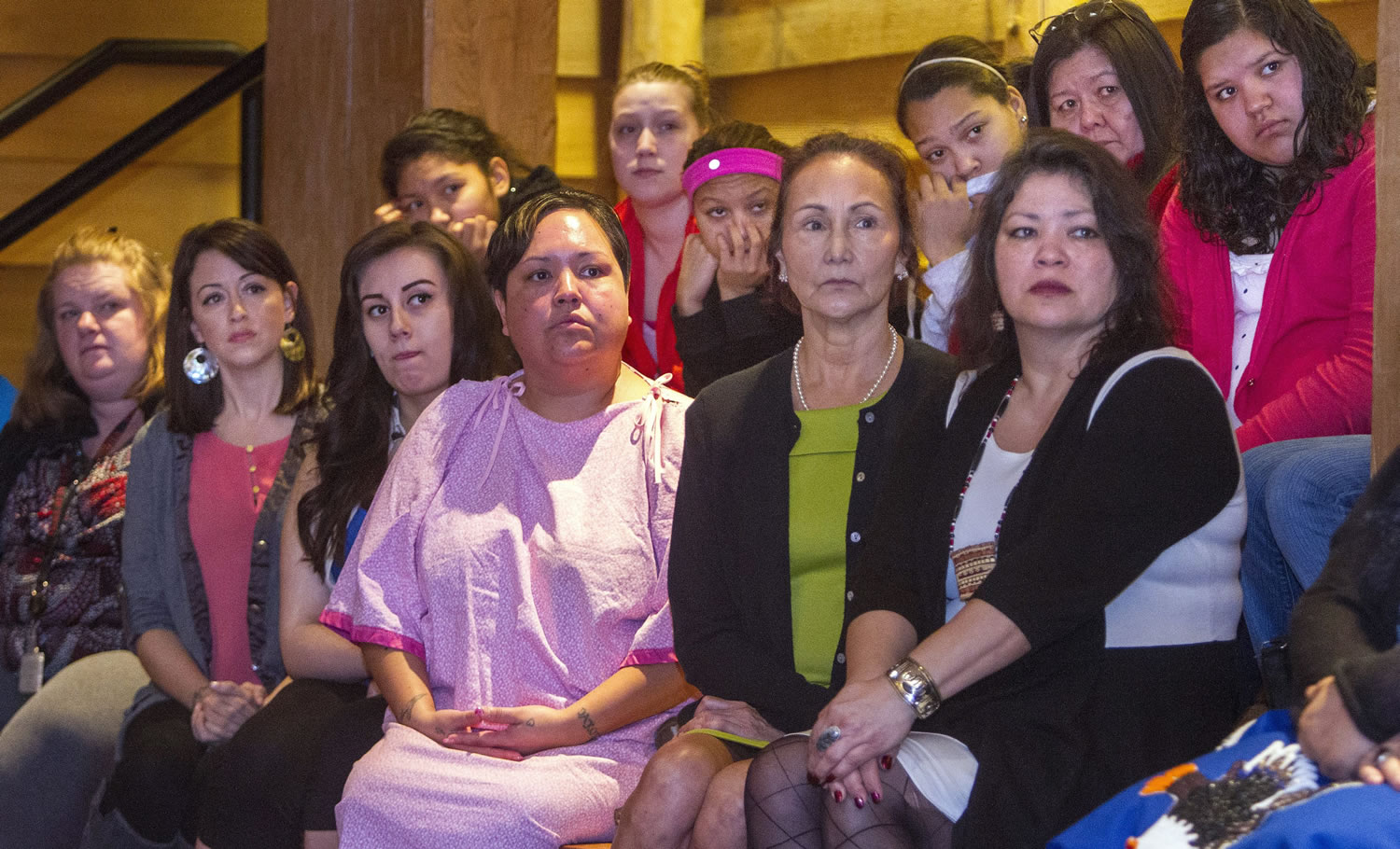TULALIP INDIAN RESERVATION — The Violence Against Women Act passed the U.S. Senate last week with a provision that would allow tribal courts to prosecute non-Indians in some abuse cases, closing a loophole that many American Indian women say leaves them unsafe.
“People are not being held accountable for the crimes they commit against the women in my tribe,” said Sydney Napeahi, a Tulalip high-schooler.
She was among those — young, old and in between — who gathered last week at a healing ceremony convened by Deborah Parker, vice chairwoman of the Tulalip Tribes board of directors, seeking to call attention to the lack of jurisdiction to prosecute non-Indian abusers on reservations. Non-Indians commit more than 85 percent of all violent crimes against Native women, according to the Department of Justice.
“To me that is another form or discrimination that should have been abolished years ago,” Napeahi said.
The bill passed the Senate with a 78-22 vote. But now it heads to the House, where a similar bill died in the previous legislative session.
Rep. Cathy McMorris Rodgers, R-Wash., vice chair of the House Republican Caucus, is expected to play a key role. Her spokeswoman, Riva Litman, was noncommittal on the tribal provision. “The congresswoman is 100 percent committed to the reauthorization of VAWA and wants to get it on the president’s desk as quickly as possible,” Litman wrote in an email. “She wants to protect ALL victims of domestic violence while ensuring that everyone’s constitutional rights are upheld.”
Many Republicans see the provision as an unconstitutional power grab by the tribes that would deprive non-Indians of fundamental constitutional rights, according to The New York Times.
The more-than-200-page bill was first passed in 1999, and had been reauthorized regularly until Congress allowed it to expire last year. The bill is the federal government’s main response to the problem of domestic violence.
Leaving prosecution to county, state or federal authorities has not worked, said Robert Anderson, professor of law at the University of Washington School of Law.
“The counties don’t want to spend resources where they don’t have taxing authority, and for the U.S. Attorney’s Office domestic violence and even rape is not a priority,” Anderson said. “As a result there is a long-standing lack of enforcement in Indian Country. You don’t have local law enforcement empowered to deal with these really serious crimes that take place on our local reservations.”



